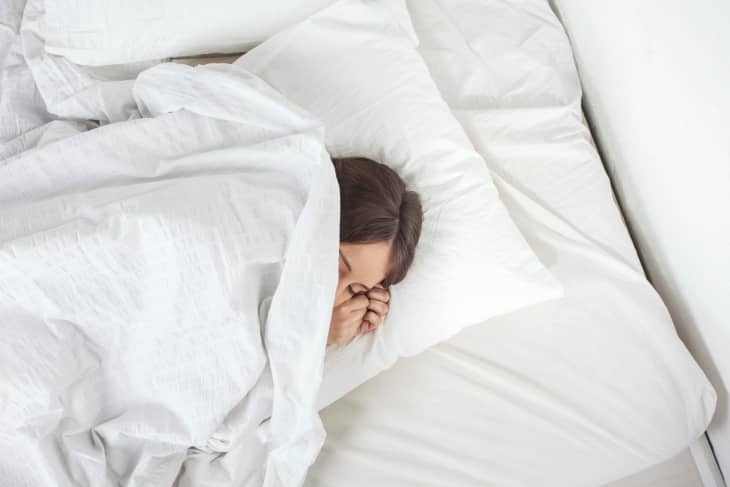The Science-Backed Guide to the Best Nap of Your Life

Everyone needs a nap now and again, but if you’re feeling sleepy and you’ve got things to do, you definitely want to maximize your time, right? Naps work in different ways, and the truth is, it’s all about timing and understanding how the body’s sleep cycles work. Before you doze off for 45 minutes and hope for the best, you should know how they work and what kinds there are—here’s what you need to know.
How Naps Work
According to the National Sleep Foundation, 85 percent of mammals are polyphasic sleepers (which means they sleep for short periods throughout the day) while most humans are monophasic (sleeping once per day). But here’s the thing: It’s actually unclear if monophasic sleep is what a human’s natural sleep pattern should or would be if not for all these years of societal intervention. Kids nap. The elderly nap. Maybe we all just need a nap now and again?
In general, there are three main types of naps that people take…
- Planned Napping: This is when you take a nap before you actually get tired, like when you know you have to be up later than usual so you don’t get tired too early.
- Emergency Napping: This is when you’re feeling suddenly tired and need to sleep before you can continue doing what you’re doing.
- Habitual Napping: This is when you take a nap at the same time every day (think naptime for kids in preschool, or older adults who rest every the afternoon).
And the best time to nap? Mid-afternoon, between 2 and 3 PM—it’s early enough that it won’t interfere with your bedtime routine. The National Sleep Foundation notes that you always want to wake up from your nap no less than 3 hours before you plan to go to sleep for the night.
4 Ways to Nap Efficiently
The length of your nap will affect the way you feel when you wake up—if you don’t time it right, you’ll feel even sleepier than you did before you dozed off. These naps are research-backed to help you feel well-rested and alert when you wake up—so if you’re feeling like you’re in need of some shut-eye right now, take your pick:
The Spontaneous Quick Wink
This is the nap you don’t plan. It’s less of a full-on nap (technically it falls into the power nap category because it’s less than 30 minutes, but more on that one in a minute!) and more like when you just need to close your eyes and relax for a few minutes, and it turns into a brief nap. Just 15 to 20 minutes of snooze time and you’ll feel refreshed and ready to take on your to-do list, according to the National Sleep Foundation.
The Energizing Coffee Nap
Science has actually shown that you can hack your naps—and get more out of them—by drinking coffee (or anything with caffeine, really) before you snooze. Since it takes about 30 minutes for caffeine’s effects to peak, if you can plan it so that you wake up from your nap at that 30 minute mark, you’ll feel your most alert, according to HuffPost. The Coffee Nap is basically a quick wink, but in the few minutes leading up to your nap, you have to drink your favorite caffeinated beverage.
The Alarm-Assisted, NASA-Approved Power Nap
Power naps are basically any short nap that’s under 30 minutes, but this one is special because it’s the kind of nap astronauts and air traffic controllers use. According to BBC, a NASA study from 1995 concluded that the ideal nap time is actually 26 minutes. Those 26 minutes will leave you feeling 54 percent more alert, and can improve performance by 34 percent.
The Leisurely Cat Nap
It may not seem like it, but you can actually get a full sleep cycle in if you nap for 90 minutes, according to the American Psychological Association. If you’re too tired for a Quick Wink or a Power Nap, this is the nap you want to aim for; anything shorter, between 30 and 60 minutes, will cause you to wake up in the middle of deep sleep and leave you feeling groggier than ever. Aim for a full 90 minutes so you can get a little extra sleep and still feel refreshed when you wake up.